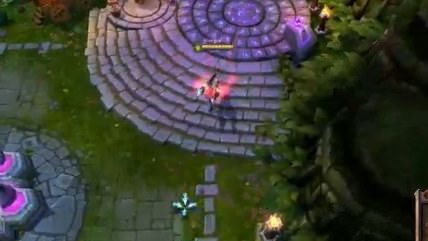Amazon's Purchase of Twitch Prompts Culture to Briefly Acknowledge Video Games Are Big Deal


Twitch almost certainly has more viewers per month than any individual cable news network. The game-streaming service boasts more than 45 55 million visitors per month, all there not to watch talking heads or actors, but their own peers playing video games.
This week Amazon announced it would be acquiring Twitch for nearly $1 billion. The purchase of Twitch by a major online player did not come as a surprise by anybody who follows gaming news or is a fan of the company. There had been rumblings that YouTube was looking to purchase Twitch and add it to its online empire. But sources say Google's plans were hampered by fears of anti-trust problems (which helps illustrate how out of whack our anti-trust regulations have gotten. Twitch has been around less than five years. Nobody could reasonably argue that their current domination of the game-viewing market is set in stone and is immune to the rise of new competitors).
The news has prompted media explainers (like this one from Vox) to spread the word to those who didn't know what Twitch was. Given that video games are now the most popular form of entertainment in the world, it feels akin (to somebody who plays games anyway) to a media outlet deciding it needs to explain how a rock concert works.
There does seem to be a bit of cultural surprise that an audience has developed just to watch other people play video games. It can seem a bit odd at first. It's different from watching football or ballet. Most of us can't do those things, at least not well. The whole thing about video games is that everybody can play them. Why watch somebody else play when you can just play yourself?
Before getting into the reasons why Twitch is popular it's helpful to remind that video games have also been a very social pastime, even before the rise of Internet social media sharing systems. The loner gamer in the basement was never, ever a stereotype that had roots in accuracy. Arcades were hangouts for teens in the '80s. Home console systems were always designed for multiple players going all the way back to the Atari. Pong was for two players! Video games are things that people actually do together, and so growing ties between gaming and social media platforms should surprise nobody.
There's been a significant rise in competitive gaming, often referred to as E-Sports. In Reason's look at "Video Game Nation" earlier in the year, we highlighted one heavy-hitter, League of Legends:
The League of Legends community is dominant on Twitch. At any given moment there are tens of thousands of viewers watching some of the top players compete around the world, not just in America. Riot Games has used Twitch to help build its audience and streams its competitions through the service. Other major games with a competitive base, like Starcraft II and Street Fighter IV, also have tournaments streamed live through Twitch.
In a sense, these games actually are very similar to watching professional football or ballet. While anybody can play these games, it takes a significant amount of skill and proficiency to be really, really good at them. This is not Starcade, that awkward effort from the '80s to make a game show connected to the gaming culture from back in the day:
So gamers themselves like to watch these streamers to see amazing plays and skilled competition and even learn from what they watch.
But that's not all that goes on at Twitch. The site hosts players who stream games as a way to help raise money for charity (I've written about this trend here). It's gaming as a shared philanthropic experience, not unlike the ice bucket challenge going around right now to help fund research to fight ALS.
Some streamers develop enough of an audience that they can actually make money from their gameplay, with subscribers actually paying them and streamers making a cut from advertising (just like people with very popular YouTube channels). There are channels where the streamers are draws because of their personalities as much as the games themselves (similar to many YouTube gaming channels).
There are other useful benefits of streaming, not that it needs to be justified for utilitarian reasons. We have reached an era of gaming where the market is flooded with so many choices. There are new video games released every single day. Streamers serve as real-time reviewers allowing potential consumers to see the product in action before they commit their money. It can be a huge boon to indie game developers when something they've made catches on with popular streamers.
It is time for the both the media and the public to stop being surprised at the size of the gaming community and the amount of revenue it generates. Video games are bigger than movies.
(Full disclosure: I occasionally stream games myself on Twitch. Anybody considering tuning in should be warned that I have turned into a middle-aged video game hipster that never plays anything popular. Lately I've been playing Endless Legend, a fantasy strategy game still in beta testing from a little-known French indie game company. I am frequently the only person on Twitch playing this game.)


Show Comments (12)